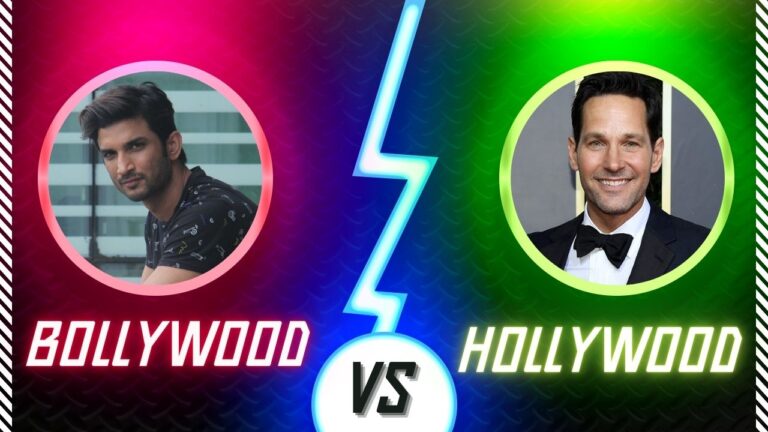Introduction
The lives of the Prophets (peace be upon them) are among the most inspiring stories in history. Many people want to learn about them through movies and TV shows, but the question arises: Is it permissible in Islam to make or watch movies about Prophets?
Islamic scholars have differing opinions, but most agree that depicting Prophets in visual media is problematic due to the risk of misrepresentation, distortion, and disrespect.
This article explores the Islamic rulings on movies about Prophets, the concerns scholars have, and Halal alternatives for learning about the Prophets.
What Does Islam Say About Depicting Prophets in Movies?
1. Prophets Are Chosen by Allah & Must Be Respected
Allah honored the Prophets with divine revelation and perfect character. They are role models for all humanity.
Allah says:
“And We did not send any messenger except to be obeyed by permission of Allah.”
(Surah An-Nisa 4:64, Source)
Because of their high status, Islamic scholars emphasize that:
✅ Prophets should not be portrayed by actors who may not uphold Islamic values.
✅ Their speech and actions must not be altered or fictionalized.
✅ They should not be used for entertainment purposes.
2. The Prophet Muhammad ﷺ Prohibited Drawing or Making Images of People
Islam discourages creating images or statues of people, especially religious figures, because it can lead to distortion or even idolization.
The Prophet ﷺ said:
“The most severely punished on the Day of Judgment will be those who make images (of living beings).”
(Bukhari, Muslim)
While this Hadith refers mainly to idolatry, many scholars extend this ruling to movies about Prophets, as they involve human actors portraying sacred figures.
3. Risk of Distortion & Misrepresentation
Movies often change historical facts for dramatic effect. If a movie about a Prophet:
❌ Adds fictional dialogues or events – It may mislead viewers about the true story.
❌ Changes the Prophet’s character – It might create a wrong impression.
❌ Is produced by non-Muslims – They might distort Islamic teachings.
Scholars argue that if a movie misrepresents a Prophet’s story, it can cause serious harm to Islamic knowledge.
4. Most Scholars Forbid Depicting Prophets in Films
Many leading Islamic institutions and scholars have issued fatwas against portraying Prophets in movies, including:
📌 Al-Azhar University (Egypt) – Prohibits any portrayal of Prophets in media.
📌 Muslim World League – Declared that Prophets and Sahabah should not be portrayed by actors.
📌 Saudi and Qatari scholars – Strongly discourage making or watching movies that depict Prophets.
Since most scholars agree that it is Haram, Muslims should avoid watching or supporting such movies.
Are There Any Exceptions?
Some scholars allow movies about Prophets under strict conditions:
✅ The Prophet’s face and body should not be shown.
✅ The script must follow authentic Islamic sources (Quran & Hadith).
✅ No addition of fictional events or dialogues.
Examples include:
- “The Message” (1976) – Does not show Prophet Muhammad ﷺ but tells the Seerah through companions.
- “Muhammad: The Last Prophet” (2002) – An animated movie that respects Islamic guidelines.
📌 However, many scholars still discourage such films, even if they do not show the Prophet’s face.
Examples of Movies About Prophets & Their Islamic Status
| Movie | Depicts a Prophet? | Scholarly View | Reason |
|---|---|---|---|
| The Message (1976) | No (only companions shown) | Some scholars allow | No face of the Prophet ﷺ shown |
| Muhammad: The Last Prophet (2002, Animated) | No (voice narration only) | Some scholars allow | Follows Islamic sources, avoids face depiction |
| Prophet Yusuf (2008, Persian TV Series) | Yes (actor plays Prophet Yusuf AS) | Most scholars forbid | Direct portrayal of a Prophet |
| Prophet Musa (Moses) Films (Hollywood) | Yes (e.g., The Ten Commandments) | Forbidden | Made by non-Muslims, often distorts Islamic teachings |
| Jesus (Isa AS) Movies (Hollywood) | Yes | Forbidden | Christian perspective, not Islamic |
📌 Any movie that directly shows a Prophet’s face is widely considered Haram.
Halal Alternatives to Movies About Prophets
Instead of watching movies that may distort facts, Muslims can learn about the Prophets in Islamic-approved ways:
1. Islamic Documentaries
✅ “The Miracles of the Prophets” – Based on Quran & Hadith.
✅ “The Life of Prophet Muhammad (BBC, 2011)” – Scholarly discussion on the Seerah.
📌 Where to Watch: YouTube, Islamic platforms.
2. Islamic Audiobooks & Lectures
🎧 Recommended Scholars:
✅ Mufti Menk – Stories of the Prophets
✅ Nouman Ali Khan – Seerah Series
✅ Yasir Qadhi – Prophets’ Lives
📌 Where to Listen: YouTube, SoundCloud, Bayyinah TV.
3. Books on the Lives of the Prophets
📖 Best Books:
✅ “Stories of the Prophets” – Ibn Kathir
✅ “Sealed Nectar” – Life of Prophet Muhammad ﷺ
✅ “When the Moon Split” – Biography of the Prophet ﷺ
📌 Where to Buy: Dar-us-Salam, Islamic bookstores.
Conclusion: Are Movies About Prophets Allowed in Islam?
❌ Most scholars forbid movies that depict Prophets directly due to misrepresentation, distortion, and disrespect.
❌ Islamic institutions prohibit making movies about Prophets to prevent misunderstanding.
✅ Some scholars allow animated or indirect portrayals that follow Islamic teachings.
✅ Halal alternatives like books, lectures, and documentaries are better ways to learn about Prophets.
The Prophet Muhammad ﷺ said:
“Whoever treads a path in search of knowledge, Allah will make easy for him the path to Jannah.”
(Muslim)
To learn about the Prophets, Muslims should choose authentic sources rather than fictionalized movies. May Allah guide us to knowledge that strengthens our Imaan, Ameen!
Also Check:
• The Story of Prophet Muhammad ﷺ in Movies & Shows
• Top 5 Islamic Biopics That Are Worth Watching
• Best Islamic Documentaries That Will Strengthen Your Faith




One Comment